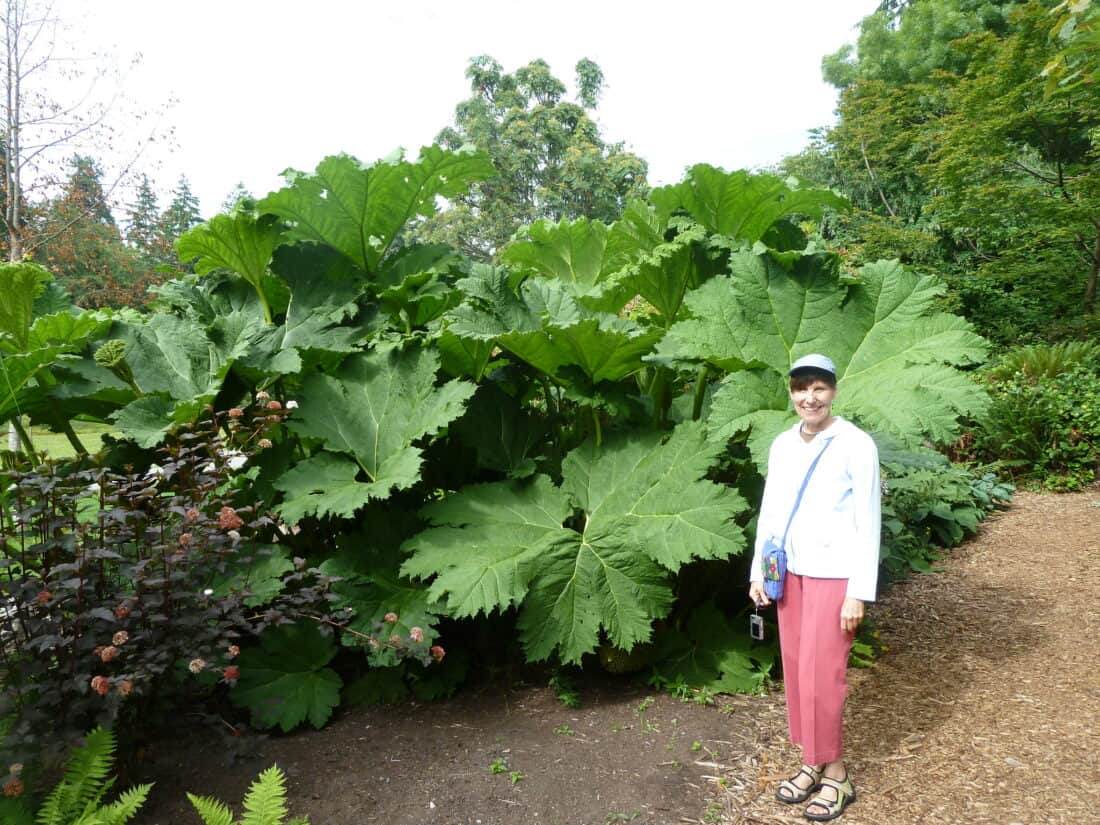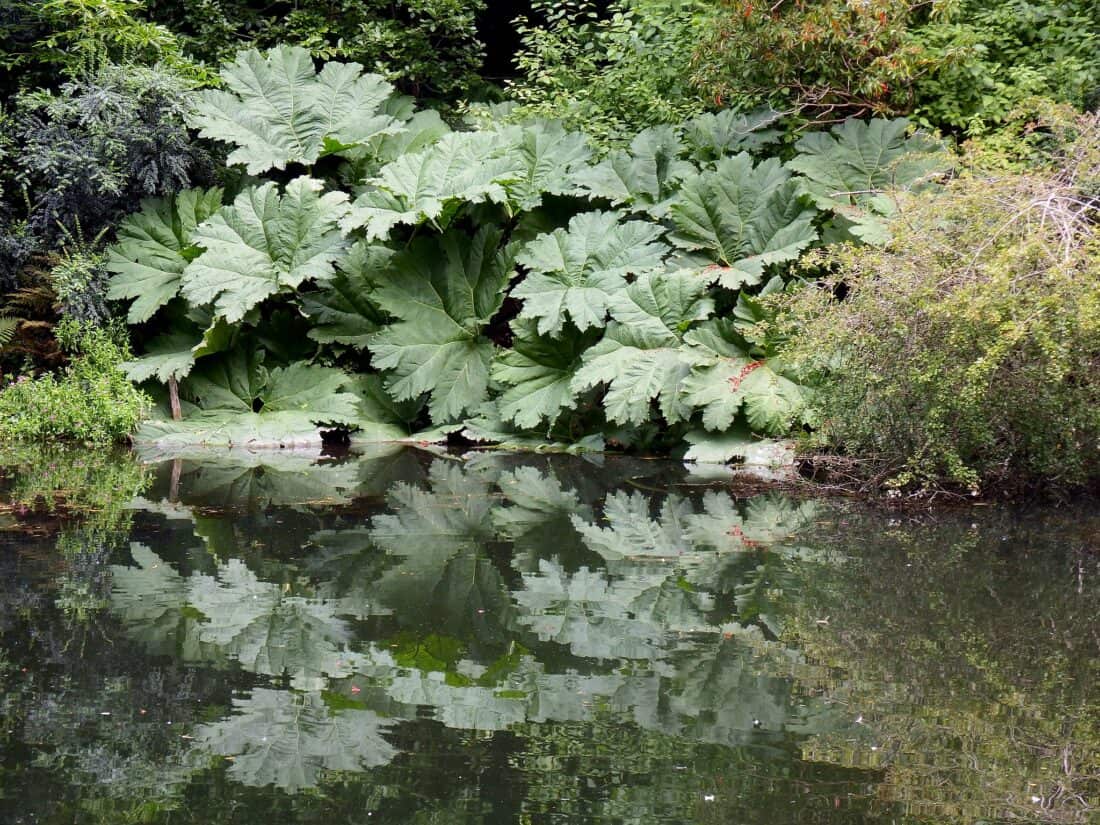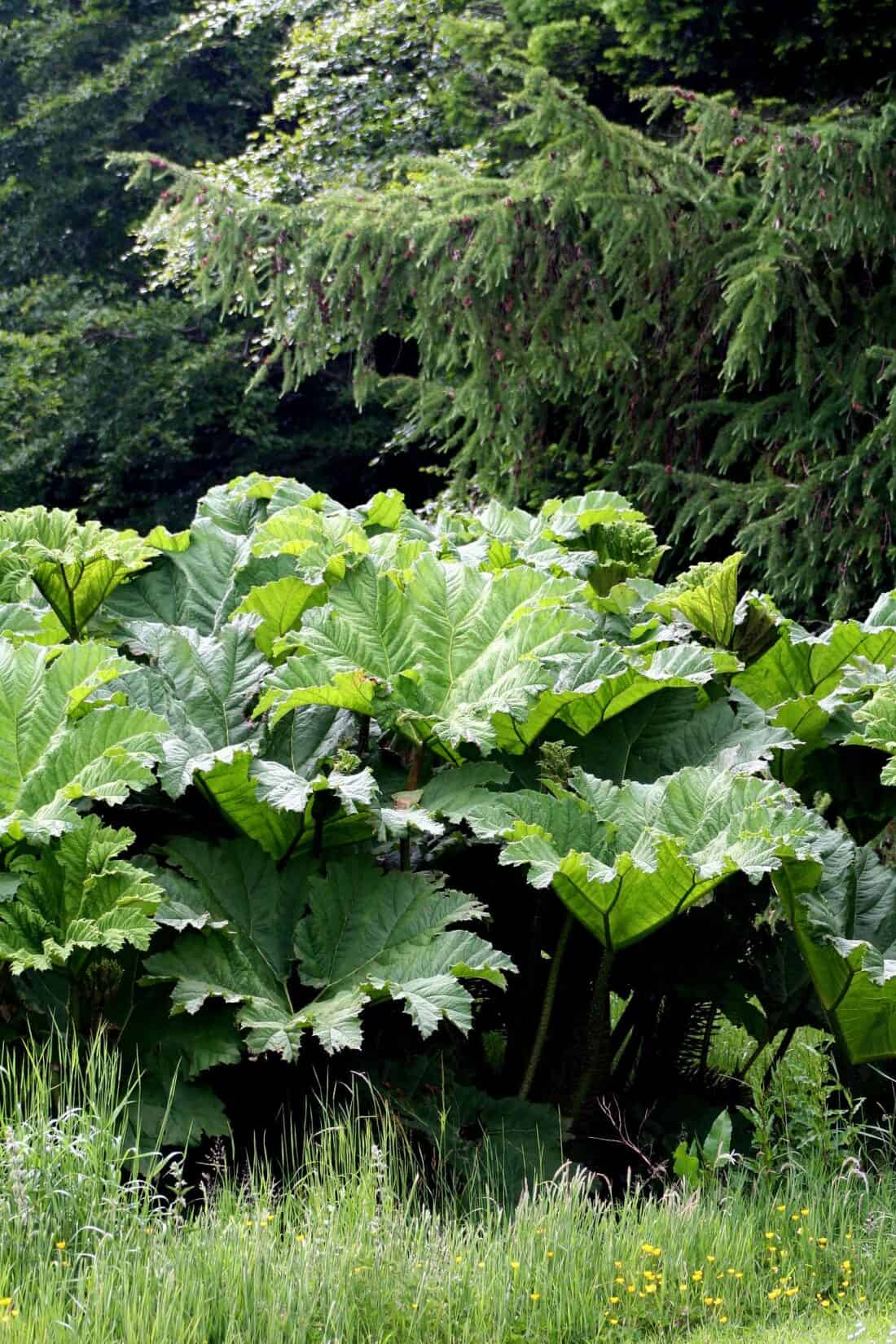There have only ever been two plants that I had my photo taken with during my years of being obsessed with plants. The first was a Stewartia pseudocamellia in the fall of 1994 at Longwood Gardens. This was by accident as I was taking a picture of a gorgeous tree with its exfoliating bark and red fall color when a bystander insisted that I get my photograph taken with the tree.
This was in the days of film cameras so somewhere in a shoebox is a picture of me in front of that Stewartia.
The Legend of Gunnera – The Holy Grail of Big leaved Perennials

Everyone has to get a photo next to the Gunnera giant plant!
(To the right – Rodney and Mature Giant Gunnera that is easily 10-12 feet tall with deeply lobed leaves)
The second plant I have actually had my picture taken in front of twice. In 2008, I was on a trip to England when our group visited the fantastic gardens at Great Dixter. Near the back of the gardens, past the nursery, and beside the rill, was a gigantic Gunnera.
You know Gunnera, right? That big leaved plant that seems to thrive in most parts of the world except for the east coast of the United States.
There it was, the same plant that I had seen in so many different magazines and books. It always seems that someone is always standing in front of the leaves for a size comparison in the pictures. The leaves had to be at least 5 feet across and the entire clump was about 8 feet tall and 12 feet across.
I instinctively asked one of my travel companions to take my picture in front of the plant. That, I thought, would be my first and last live encounter with the plant.
Lo and behold, the following year I had the good fortune to travel to France and see many gardens in and around Paris. One garden we visited was off the beaten path in Normandy.
I was not expecting a lot as it was a municipal site but once we got in, it blew me away. Around one corner, there was the largest Gunnera that I had ever seen in my life.
This plant was easily 12 feet tall and 15 feet across. The leaves were enormous. Since none of my friends were nearby, I ran around until I found one and asked that they take my picture in front of the plant.

Can you Grow Gunnera in New England?
Both of these plants were Gunnera manicata, which is native to southern Brazil.
Gunnera tinctoria is another notable species which is native to southern Chile (it is often called Chilean rhubarb or dinosaur food because its leaves are so large). I would think that G. tinctoria would be hardier and might survive our North American winters a bit better than G. manicata.
We were growing G. manicata in our USDA zone 6a gardens at Coastal Maine for a couple of years until a really cold winter finally did it in. We supposedly have a much hardier strain which we planted in the gardens this summer. I hope that the plant has had enough time to root in and become somewhat established before the onset of winter.

I am also on the hunt for some superb forms of G. tinctoria to try. I just read that it has escaped cultivation in Ireland and New Zealand to the point of becoming a noxious weed in some areas.
Once we do find seed or plants of Gunnera tinctoria, it will be grown in an area where we can keep a close eye on its behavior. These plants need rich soil, plenty of moisture and part shade to really reach their full potential – but we want to make sure it doesn’t get out of control either (should we get lucky and have our experiments go too well).
Being able to find a Gunnera that will not only grow but thrive in our Maine climate has become somewhat of a quest for the Holy Grail. I have heard that a hardy form exists and we are on a lifelong search to prove that it really does.
Have you ever grown any of the Gunnera species? It is hard to USDA zones 7-10. If so, which one and how did it perform for you?
–Rodney

Here in semi-arid Southern California we gardeners suffer from Gunnera-envy. Nature provides us with compensation if we search out Bismarkia noblis, vastly different of course, but like Gunnera providing leaves the size of a kitchen table. There is some comfort in that.
Where did you find G. Manicata for sale in the US? Let alone a hardy species? I have been trying to find it for years and every time its actually a Tinc. Please let me know!
Alexandre – This post was originally written by Rodney – I am not sure where he might have found the plants – he is now at the arnold arboretum (if you wanted to reach out to ask him directly) but I will keep my eye out and update this if I find them. – Rochelle